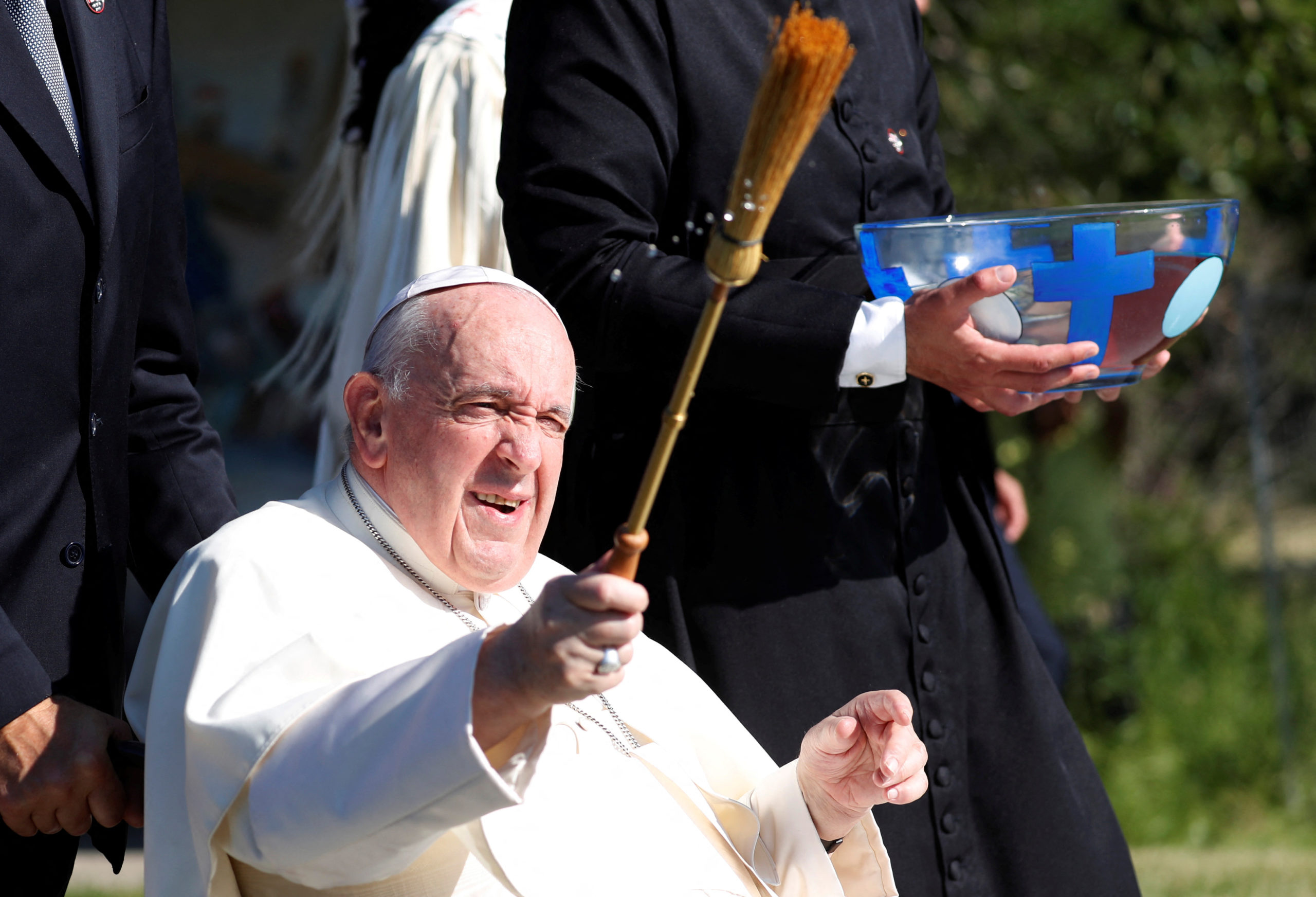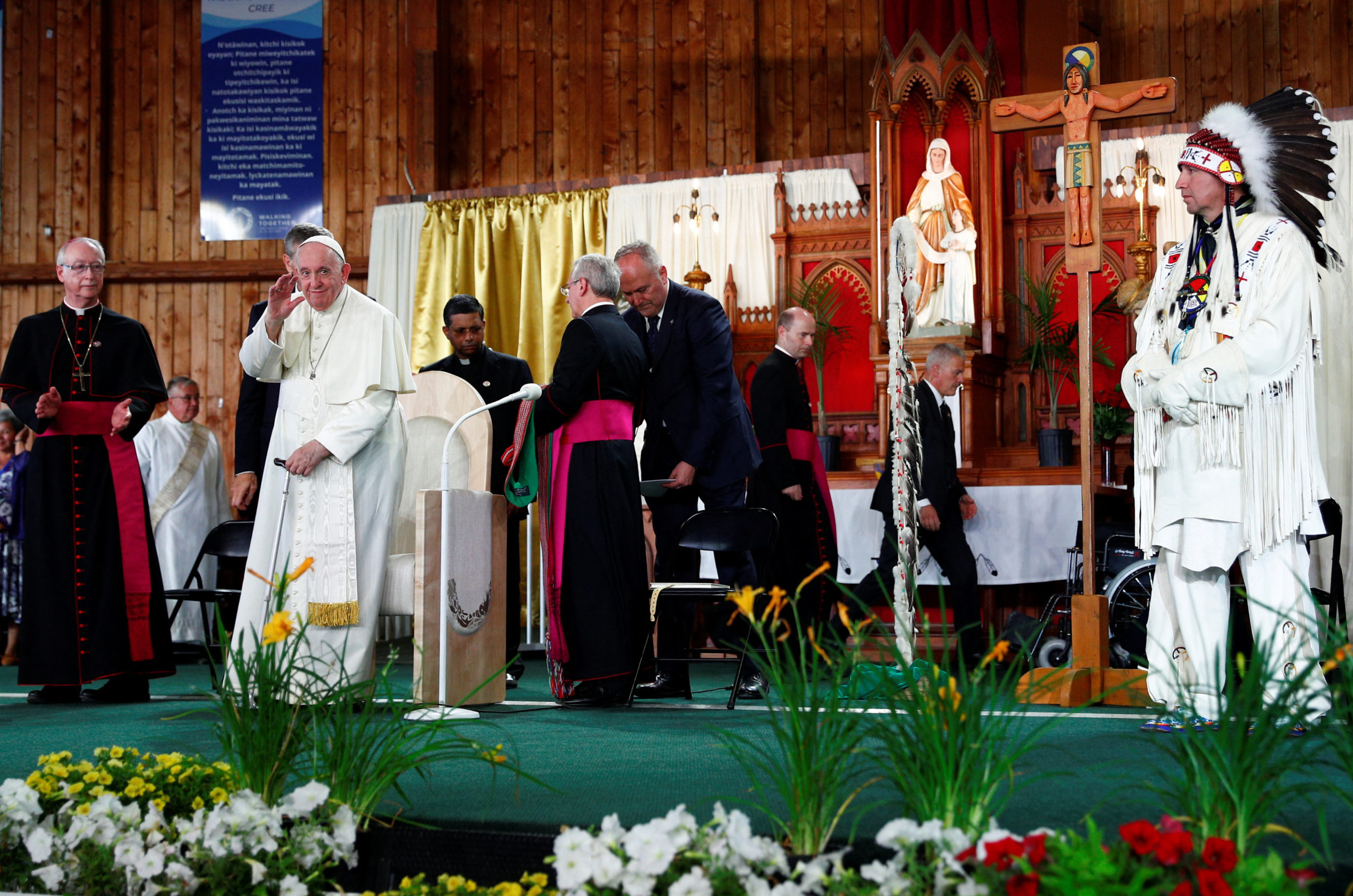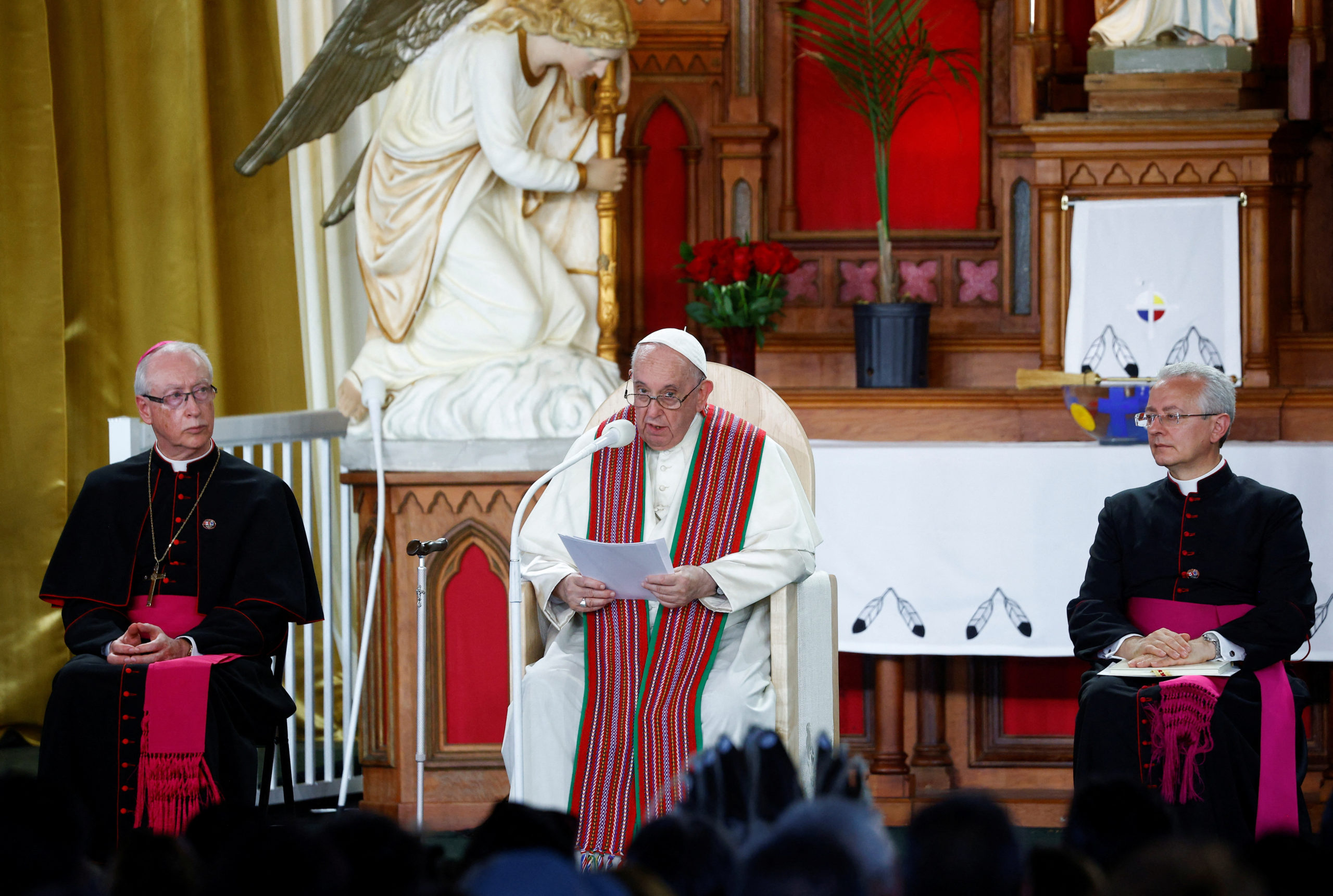Pope: Church must take institutional blame for harm done to Indigenous Canadians
Pope Francis also called for a "serious" investigation into Canada's residential schools.

LAC STE. ANNE, Alberta — Pope Francis on Tuesday said the Roman Catholic Church should accept institutional blame for the harm done to Indigenous Canadians in residential schools that tried to wipe out native cultures.
Francis made his comment during a visit to Lac Ste. Anne, a lakeside pilgrimage site about 70 kilometers (44 miles) west of Edmonton popular with both Indigenous Canadian Catholics and those of European origin.
After arriving to the sounds of Native drumbeats and chanting, the pope, seated in a wheelchair, blessed the lake then spoke of “the wound of the violence suffered by our Indigenous brothers and sisters” and “the terrible effects of colonization.”
Francis is on a week-long tour of Canada to apologize for the Roman Catholic Church’s role in running residential schools that tore Indigenous children away from their families and became places where abuse was rampant.
“All of us, as Church, now need healing; healing from the temptation of closing in on ourselves, of defending the institution rather than seeking the truth, of preferring worldly power to serving the Gospel,” he said in a covered outdoor space after greeting the crowd in three Indigenous languages.
Cindy Bearhead, 58, a school survivor from the Stoney Nakoda First Nation, was among a crowd of several hundred people at Lac Ste. Anne.
“For him to come here and bless the lake and bless the people, I think that’s really historic, and for the Vatican to actually acknowledge indigenous people and our spiritual place in Canada,” she said.
More than 150,000 Indigenous children were separated from their families and brought to residential schools over more than a century. Many were starved, beaten for speaking their native languages and sexually abused in a system that Canada’s Truth and Reconciliation Commission called “cultural genocide.”
The pope spoke a day after visiting the town of Maskwacis, Alberta, site of two former schools. He issued a historic apology that called the Church’s role in schools and their forced cultural assimilation a “deplorable evil” and “disastrous error.”
He also called for a “serious” investigation into the schools.
On Tuesday morning, at a Mass for about 50,000 people at a stadium in Edmonton, Francis praised the Indigenous tradition of showing great respect to elders and learning from them, saying their legacy must not be lost in modern society’s “fog of forgetfulness.”
His words were particularly poignant for Indigenous communities because the residential schools, which ran from 1870 to 1996, destroyed links between generations so precious to indigenous cultures.
In his homily, he hoped for “a future in which the history of violence and marginalization suffered by our Indigenous brothers and sisters is never repeated.”
Never forget, but forgive
Francis entered the Edmonton stadium standing in a popemobile, which stopped frequently as it toured the pitch so babies and children could be brought to him to kiss or bless.
Before the pope arrived, Phil Fontaine, a former Assembly of First Nations national chief and a residential school survivor, reflected on Francis’ visit on Monday to Maskwacis.
“I want to say to you, my friends, that what we really are talking about is forgiveness. We will never reach reconciliation without forgiveness,” Fontaine said.
“We will never forget but we must forgive. We invite the Catholic Church to rebuild the fractured relationship it had with us, for us and for all Canadians.”
Fontaine was among the Indigenous leaders who met the pope at the Vatican earlier this year and invited him to Canada.
Indigenous leaders as well as survivors of the schools said that while the pope’s apology on Monday evoked strong emotions and was a highly significant step towards reconciliation, the Church and the government needed to take more action.
“You can’t just say, ‘I am sorry,’ and walk away. There has to be effort, and there has to be work in more meaningful actions behind words,” said Nakota Sioux Nation Chief Tony Alexis.
On Wednesday, the pope will travel to Quebec City for the more institutional part of his visit, meeting with government officials and diplomats.
On his way back to Rome on Friday, he will stop for a few hours in Iqaluit in the Canadian Arctic, where Indigenous affairs will return to the fore.
The Iqaluit area is one of the fastest-warming parts of North America and there the pope is expected to address the dangers of climate change.
Additional reporting by Steve Scherer.



